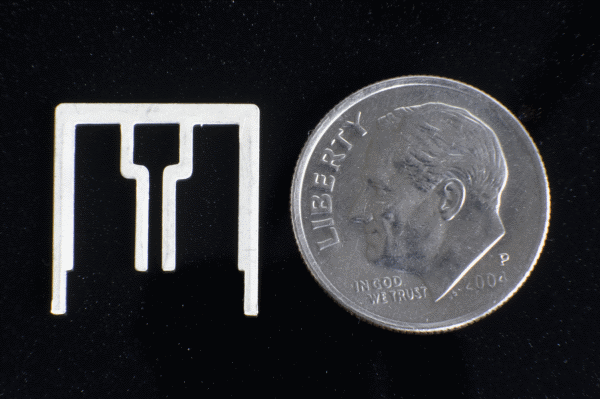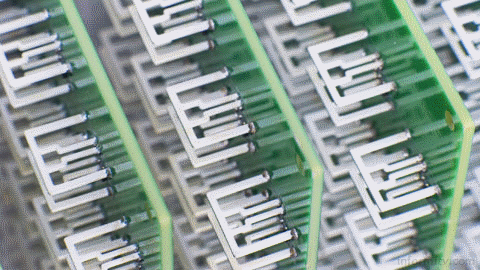aNewDomain.net — The Supreme Court ruled against Aereo last week, claiming that the streaming/antennae company violated the distribution of copyrighted material. Up until recently, Aereo stored local TV broadcasts on servers and streamed them online. It leased tiny antennae to its customers, allowing those without cable subscriptions to access local content. The Supreme Court essentially stated that Aereo was at fault for re-transmitting copyrighted material without permission. But the dialogue Aereo created is real — people want to stream local TV over the Internet.
Tricky Tech
The antennae pictured below, roughly the size of a dime, was deployed by Aereo as individual and specific leases to its customers. Customers would then receive content over their personal antenna.

Image credit: Aereo
The claim against Aereo was tried in the lower courts with regard to the technology of the antennae itself. Were they electronically independent? Because, if not, it meant the antennae were part of a large network, which streamed copyrighted content, making Aereo a major violator. In the first court case the witnesses were divided. The expert from the TV station said they were part of one network, Aereo’s expert said they were independent.

Image credit: InformITV
However, the Supreme Court took a different approach to the case. Its decision was not based on the technology of the antennae, but rather that Aereo was actually selling subscriptions of copyrighted television through the antennae. The violation was about the content, not the tech. As a cord cutter, I was cheering for Aereo. I did, however, question the specifics of its technology and felt its kludgy system worked around copyright law a little too well.
Future of TV
Meanwhile, I think a lot about the future of local TV. If those tiny antennae really worked independently, Aereo could sell them to end users and let them receive local broadcasts over the air, but I suspect they either do not work as claimed or only work if they are located very close to the transmitting antenna. Regardless, the current Aereo business model is toast. It has shown, however, that the market for local content delivered over the Internet is a legitimate one. If customers are willing to pay for streaming of local content (including ads), why don’t the copyright holders offer the service themselves or hire Aereo to do it for them?
For aNewDomain.net, I’m Larry Press.
Based in Los Angeles, Larry Press is a founding senior editor covering tech here at aNewDomain.net. He’s also a professor of information systems at California State University at Dominguez Hills. Check his Google+ profile — he’s at +Larry Press — or email him at Larry@aNewDomain.net.













[…] commercials, they said “yes.” Before the courts put them out of business, Aereo also showed us that there is a market for on demand local TV with commercials. My students are young and on limited budgets, but, as Netflix and Amazon Prime have shown, there […]